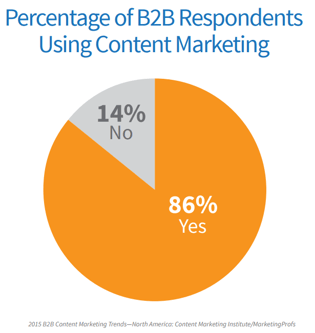If you're in business, you've probably heard the sometimes seemingly magical term "SEO," which stands for search engine optimization.
Some businesses may have been burned in the past by previous SEO companies, resulting in penalties by Google's Penguin and Panda algorithms. Let's start with some basics, and if the answers you get from the first two questions sound fishy, or if a company seems to practice techniques that have gotten websites penalized, then move on to the next SEO company.
1. What is the Google Penguin algorithm?
In short, the Penguin algorithm was put in place to combat "black-hat" techniques (which are less-than-honest, to put it mildly) in order to trick Google into ranking their site higher. After a yearlong wait, Google Penguin 3.0 was refreshed back in October of 2014.
SEO companies would over-optimize links for certain keywords to get them to rank. This would result in not having a diverse link portfolio that used other generic terms to make the SEO backlink portfolio more natural to Google.
The reason SEO agencies did this is simply that it worked so well. It was very easy to rank for certain keywords on the first page using this technique, which is why Google created the Penguin algorithm to combat the practice.
While a lot of SEO companies still use some form of marketing automation, you want to stay away from the ones that over-optimize for keywords to rank for them. This practice can get you ranking quickly in some cases, but will get you penalized and you could find yourself in a deep hole in Google that will take a long time to get out of.
2. What is the Google Panda algorithm?
Panda was implemented to target "thin" sites that had very little unique content on their pages. This type of site doesn't provide value to the user. Panda mostly penalized one-page websites that used squeeze pages to convert visitors into leads and sales.
Google also went after website designs that had duplicate content, which means they were just copying and pasting content from other websites onto theirs. While we suggest staying away from this practice, there are two ways you can use this and still be safe from being penalized by Panda.
- Put a link to the original source from wherever you got the content for any text that you copied to your site manually or automatically through RSS feeds. With syndication, you can take the RSS feeds from other websites and use automated tools or scripts to publish their information to your site as they publish it on theirs. Even if you only use a paragraph or a quote, you should always link back to the source where you found your information.
- No-index the page that you have the duplicate content on. This tells Google to "not count" the page in their Google index so it will not show up in any Google search results.
If your SEO company isn't clear and transparent about these techniques and what they are doing optimizing on your website, then you should look elsewhere.
3. What clients have you worked with?
Sometimes agencies have non-disclosure agreements with some of their clients, but a lot of the time, they will be able to share who they have worked with or are working with.
Ask if they have any similar clients in your industry, whether it is a direct competitor or a non-direct competitor in your industry. See what the results they have gotten for them. Typically, you can expect similar results.
4. Do they have case studies?
Case studies are one of the best ways a marketing agency can show off their results with clients so that you can get a glimpse of what you can expect. Analyze their case studies, and if they have one relevant to your industry it will show that they can most likely get you similar results.
SEO agencies that also work on designing websites should have a website portfolio that showcases the websites they created. If you find an SEO agency that is also a web design agency, you may be looking at a huge plus because it means they also know a great deal about optimizing websites for search engines and site speed, which are very important in SEO marketing. So ask if they have any case studies with clients where they created websites and also executed some online marketing strategies.
5. What is their experience in the SEO industry?
Ask an SEO company some of these questions ... How long have they been doing SEO marketing? How many employees do they have on their team, and what are their positions or general tasks will they be doing for you? Do they have a blog that demonstrates industry authority, with posts written by subject matter experts? Do they attend SEO marketing and digital marketing conferences to keep up with the latest trends and continue to learn new ways to tweak and improve their processes?

They should know a great deal about on-page optimization, identifying and fixing penalties, finding broken links (and setting up 301 redirects to fix them), finding any issues with your website, using Google Analytics and Google Search Console (formerly Google Webmaster Tools), and they should have a lot of experience using popular online marketing tools.
6. Are they doing content marketing?
Content marketing has been around for a very long time, contrary to what some believe. Ever since John Deere created a magazine called The Furrow back in 1895, companies have been creating content that is helpful to their customers and non-promotional of their products and services. It only became a popular strategy for most SEO companies in recent years, as the algorithms made all SEO agencies change their link building practices.
Content marketing is creating useful and helpful resources through many different online media, whether it be your site or others:
- Blogging on your website.
- Guest blogging on your industry related and niche websites.
- Social media marketing.
- Building relationships with industry experts and influencers.
- Practicing digital public relations.
- Viral marketing.
- Creating infographics and marketing them.
- Reaching out to promote your content and earn backlinks.
- ...and so much more.

If they aren't doing content marketing, they are a part of about 14% of marketers who are not practicing it. So would you want to work with them or the 86% of marketers doing content marketing?
7. Do you create custom campaigns for different clients?
Every business is different and has different business goals, so why should the plan of attack be the same for all? Some companies want brand exposure, others want sales, and some may just want more traffic or to create awareness on a topic and become the go-to source for that industry.
Whatever it may be, ask how they can customize a plan that fits your business's needs. They should be able to put together a game plan with a mix of strategies including SEO marketing, content marketing, social media, and Google display ads to meet the needs that you are looking to fill.
8. What do you need from me?
SEO companies should be asking about the background of your business and what you have been doing in the past with your SEO marketing. You are the expert for your business, so they should want to know about your business process and what you do to be able to explain it intelligently when they're doing content marketing.
There may be times that the client needs to step in to make sure all of the content their SEO is developing is accurate, so be sure that your SEO company is actively asking questions about your business to know more about you.
9. What tools do you use?
While not every SEO agency will want to give away the "secrets" about the methods they use, they should still be transparent enough to say they use tools like Screaming Frog, all of the Google tools (and it's a big plus if they are a Google partner), SEMRush, Majestic, Ahrefs, Moz , Help a Reporter, Buffer, Hootsuite, or one of the many others out there.
10. How long will it take to get to the first page on Google?
This is almost a trick question, as no one can guarantee landing you on the first page, especially when it comes to competitive keywords. However, a solid SEO company may be able to look at your competition and determine a timeframe of ranking on the first few pages within 6 or 12 months. But in some cases if the industry is extremely competitive, ranking well could take 1-2 years.
The reason it could take so long is that other businesses have been doing SEO for years and years. Then you step in and think you can overtake all the work they have been doing for years. It just doesn't work that way, and sometimes getting ranked can take a lot of time and patience.
11. What analytics and metrics do they use to determine success?
Although Google Analytics is definitely the most popular metrics tracking tool, it doesn't have to be the only analytics platform that your company uses. SEO companies should be at least tracking your analytics, traffic, and rankings. For e-commerce sites and other companies trying to reach certain goals, including filling out a form, downloading a file, or generating leads, goals can be set up in analytics and conversion rates can be tracked.
12. Why should they be hired over another SEO company?
How do they stand out from other SEO agencies? What results can they show you and what work will they provide for you? Were they able to identify all the errors on your website and able to fix them?
If an SEO agency can't answer at least most of the above, it may be time to walk. Remember, your agency is your partner for success - and without trust, a successful partnership simply can't exist.
If you have any other questions to ask SEO agencies, or would like to talk to our agency about SEO marketing, just give us a call or fill out the form.




